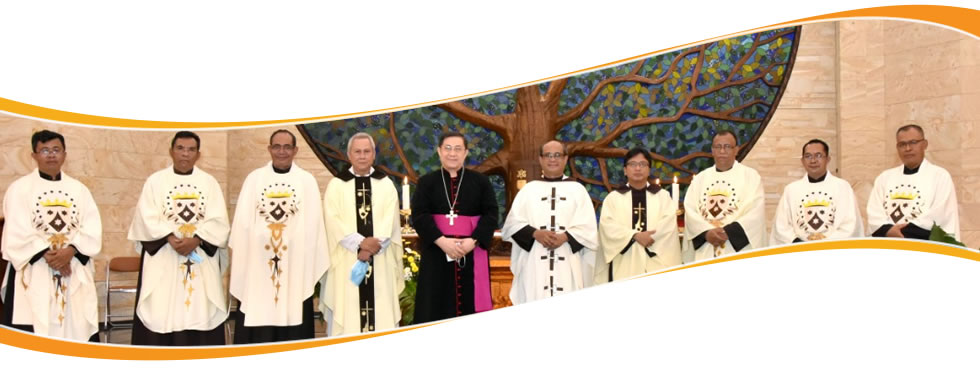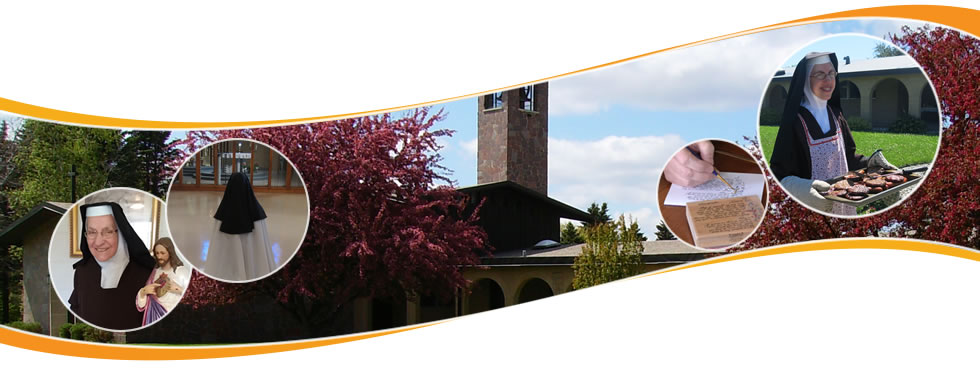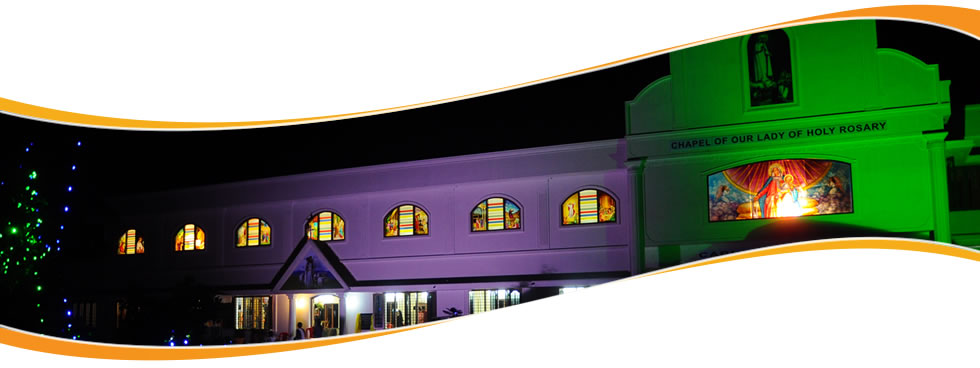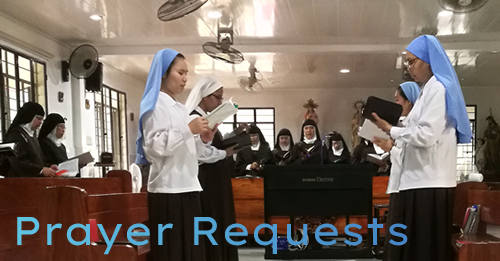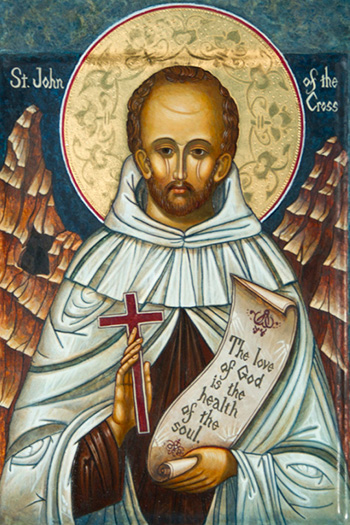 14 December Feast
14 December Feast
Saint John was born, probably in 1540, in Fontiveros, near Avila in Spain. His father died when he was very young and he had to move with his mother from one place to another, while he tried as best he could to continue his education and, at the same time, to earn a living. In Medina in 1563 he was clothed in the Carmelite habit and, after a year's novitiate, was given permission to follow the unmitigated Carmelite Rule.
He was ordained priest in 1567, after studying philosophy and theology at Salamanca, and, in the same year, he met Saint Teresa of Jesus who, a little while before, had obtained permission from the Prior General Rossi to found two communities of contemplative Carmelite Friars (later called the Discalced) in order that they might help the communities of nuns that she had established. A year later - during which he travelled with Teresa - on the 28th November 1568, John became part of the first group of Reformed Carmelites at Duruelo, changing his name from John of St. Matthias to John of the Cross.
He occupied many different positions within the Reform. From 1572 to 1577 he was general confessor for the monastery of the Incarnation in Avila (not then reformed but where Saint Teresa was Prioress). In carrying out his duties, he became involved in an unpleasant dispute within the monastery, a dispute for which he was considered in some way responsible. As a result, he was seized and spent about eight months imprisoned in the Carmelite house in Toledo, from where he escaped in August 1578. During his time in prison, he composed many of his poems for which, later on, he wrote commentaries in his celebrated spiritual masterpieces.
After Toledo, he was appointed superior in a succession of houses, until, in 1591, the Vicar General, Nicolas Doria, (the Reform having, by this time, gained a certain autonomy) dismissed him from all his positions. In the final years of his life, this was not the only "trial" which came to him who had given everything to the Reform, but he bore all his trials as a saint. He died between the 13th and 14th December 1591 in Ubeda, aged 49 years.
He communicated his spirituality essentially by word of mouth and it was only written down as a result of persistent requests. The central theme of his teaching, which has made him renowned both within and without the Catholic Church, concerned the union through grace of man with God, through Jesus Christ: he described a spiritual journey from the very beginning up to the most sublime level, which consists of the stages of the purgative way, the illuminative way and the unitive way or, in other words, the stages for beginners, for the proficient and for those who are close to perfection. As Saint John says - in order to arrive at the All which is God, it is necessary that man should give all of himself, not like a slave but inspired by love. Saint John's most celebrated aphorisms were: "In the evening of your life you will be judged by your love" and, "Where there is no love, put love and then you will find love". Canonized by Pope Benedict XIII on 27th December 1726, he was proclaimed a doctor of the Church by Pius XI on 24th August 1926.





